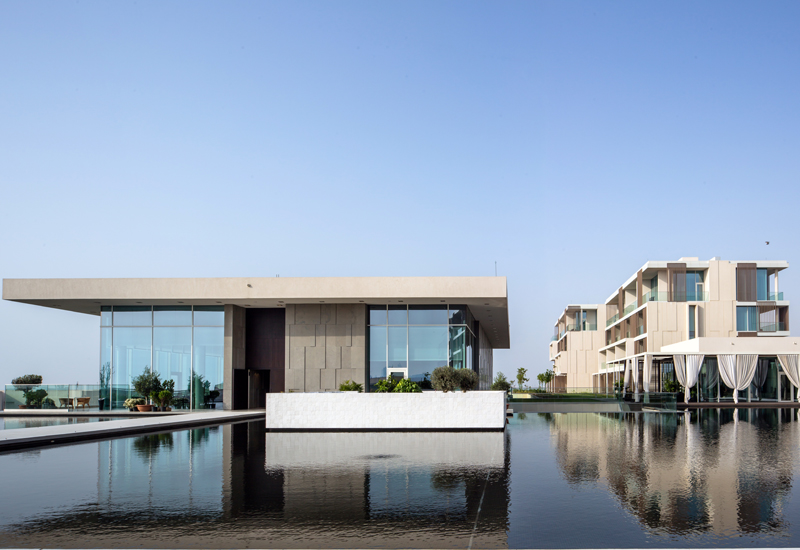 The building on the left housesVinesse, the main restaurant, which is open for breakfast, lunch and dinner. Because of the elevated location of the restaurant, the guests dining on the terrace can enjoy direct views of the sea.
The building on the left housesVinesse, the main restaurant, which is open for breakfast, lunch and dinner. Because of the elevated location of the restaurant, the guests dining on the terrace can enjoy direct views of the sea.
MICE will also play a role; the resort has private meeting rooms and a 430m2 banqueting space which can host up to 220 guests. Meow points out that the team will make full use of the natural surroundings to be creative and tailor activities for guests. “This resort is about selling experiences. We want to maintain high quality service deliveries, so we will cater to smaller, luxury groups. I like to say that small business is our business.”
Catering to guests’ needs — especially when the property is keen to focus on individualised service — is more important than ever before, and on that note, Wolter adds that recruitment was another highlight, as it was very important to him and the operator to find the right people. Now, the resort has about 30-35% of its staff hailing from the Oberoi Academy.
And one of the right people for the job is The Oberoi Beach Resort Al Zorah executive chef Vishal Khulbe, who has been with The Oberoi Group for many years, and reveals that the culinary philosophy of the hotel is driven by Slow Food which is all about being sustainable, local, organic, and wholesome.
The restaurants and bars of The Oberoi Beach Resort Al Zorah include: Vinesse, the main restaurant, which is open for breakfast, lunch and dinner; Aquario, the beach restaurant which serves lunch and dinner; and the poolside bar, which serves light, healthy tapas and a variety of fresh juices. Wolter says Oberoi worked with a third-party to create the concepts, although all are operated in-house. He is adamant not to categorise any of the concepts, and does not call anything an ‘all-day dining restaurant’, for example.
For these concepts, Khulbe works with four suppliers based in the UAE, including a farm in Al Ain which supplies organic and non-organic seasonal vegetables and chicken, Italian Dairy Products for its cheeses, Al Fumo for its smoked meat, and a local supplier in Ras Al Khaimah for quail and lamb.
He adds: “We have tied up with the local fishermen of Ajman. Once or twice a week we get fresh seafood from them. We don’t do any hammour. We also use farmed fish, like sea bass and trout, grown in a controlled, natural environment. We don’t have salmon. We have our own agricultural boxes where we grow tomatoes, arugula, and basil, and once the summer begins, we’ll start eggplant and cucumber. We just planted the citrus tree and as we come into winter they will be fruiting.”
“The whole idea of the culinary is to highlight the produce, let it speak for itself,” adds Khulbe.
And the team is determined to let the destination speak for itself. Wolter says: “We are competing with Dubai. Our edge is that it’s a resort property, and we are also carved into a development which will attract its own clientele. Being the first hotel on the plot is a bit of a drawing card.”
He says by the second day of opening, 10 villas were already occupied, and he adds: “People were waiting for us, we have to work hard in this market, but there’s a lot of selling points which you won’t find anywhere else.”
Wolter brings it back to the importance of the people on the resort and concludes: “Are we doing everything right? Probably not. Are we making mistakes? 100%. But it’s how we recover and approach procedures that makes a difference. That’s what the UAE is all about — to lead from the front as a property, and to set a benchmark. For people staying here and paying a premium, the tangible is irrelevant; the intangible makes a difference.”

| Advertisement |




